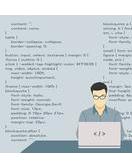Many of us worry about money, and more specifically getting ahead. In today’s consumer driven society, it’s a real struggle to save. We’ve put together a list of practical saving hacks that will help you to enjoy a cashflow positive future.
Consolidate your debt
If you’re like many people, particularly after a life event of even the holidays, you may be carrying debt on multiple credit cards. Firstly, sit down and write a list of all the cards and balances. Assuming you’re not going to be able to pay it all off in the near term, consider shopping around for a 0% balance transfer, low annual fee credit card. This exercise will help to reduce the cost of your current debt and rationalise the number of cards in your wallet.
Cut up redundant credit cards

Next, cut up the cards you have transferred your debt away from and close these accounts immediately. Do not let banks and credit card companies engage you in a scripted dialog tempting you to raise your limit or enticing you with special offers. They’ve already made too much money out of you so it’s time to stop being a credit victim. Part of this exercise is to remove the temptation to spend and then re-consolidate debt. If you have three or four cards, chances are you’ve been paying several thousand dollars in annual fees. Think of the savings!
Use a debit card
Ensure you have a debit card linked to your normal transactional account where your income is paid into. If you’re tempted to spend, you’ll only be able to do so if there is money on the account as a debit card will not allow you to slide into debt like a credit card does. As you gain control of your situation and start living within your means you can also leave your credit cards at home.
Contact your bank or ask for help
This is probably the hardest step, but it may not always be required. However, doing it sooner rather than later might just avert the worst-case scenario. Contacting the bank is just like standing up in a circle admitting you have a problem, except you do have to use your real name. But, the good thing is that the banks have dedicated teams of understanding specialists. If all else fails you could confide in a close friend or relative.
Change your habits

Habits are hard to crack, but doing so will yield great results. Try not to put yourself in situations where you’re tempted to splash out. Avoid meeting people in big spending situations such as bars, recycle clothing instead of buying new outfits, use public transport instead of driving or simply buy generic label goods.
While we’re talking of habits, you’ll need to start paying your bills on time. If you can’t, make the phone call to the vendor to arrange an alternative to avoid debt collection processes kicking in. At the same time, review if you’re getting the cheapest pricing in the market. There are plenty of websites that can help you with this.
Hunt out the dead money
Old gym memberships, magazine subscriptions, ongoing charity donations and other regular debits from your bank account may be inadvertently draining your cash. These charges really do mount up, so its time to be firm and really challenge whether those items are warranted.
Small changes can result in big savings
Finally, stop and think, “do I really need that $4 cup of coffee every morning and afternoon?”. After all, $8 a day is $1600 per year saved right there!
Happy money saving.

